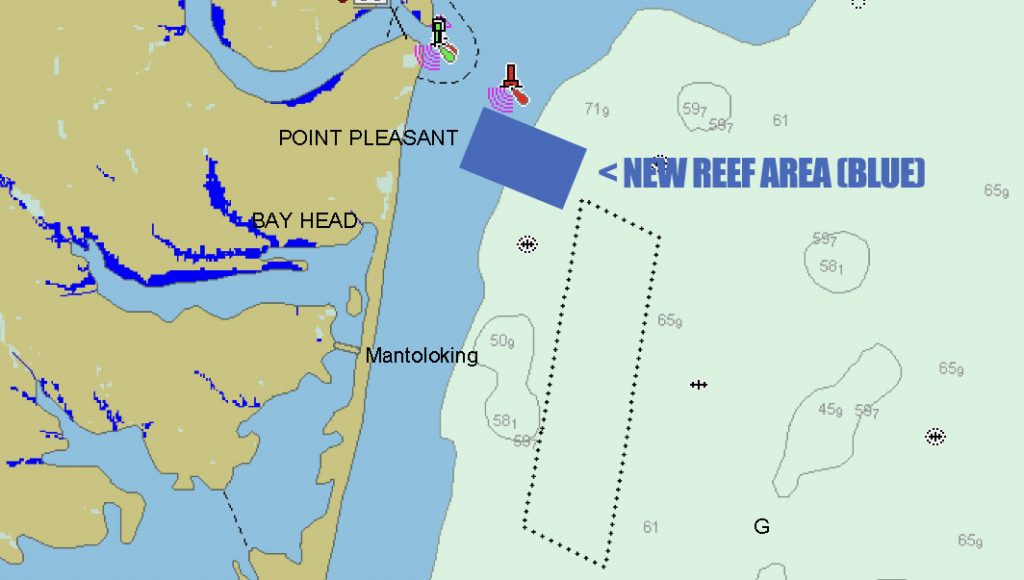State officials announced Thursday that they had received permission to construct a third artificial reef off Manasquan Inlet, one of the state’s most popular fishing and boating access points.
The area is already served by the Axel Carlson Reef, to the south, and the Sea Girt Reef, to the north. The new reef would be positioned to the southeast, the state Department of Environmental Protection said in a statement. The reef, called the Manasquan Inlet Reef, would be located just north of the Axel Carlson reef, literally 5 minutes or less from the mouth of the inlet, according to preliminary mapping issued by the state.
The Manasquan Inlet Reef site will be located 1.7 nautical miles southeast of the inlet, which is just north of Ocean County’s Point Pleasant Beach. When fully developed, it will occupy nearly one square mile of sea floor in water from 67 feet to 74 feet deep.
|
|
A reef to be built off Ocean County’s Manasquan Inlet is part of a compromise the Christie Administration reached between recreational anglers and commercial fishermen over reef access that resulted in restored federal funding for the program, the state agency said. A second, previously planned reef to be developed in Delaware Bay will expand fishing opportunities in that region. In exchange for the new reefs, some commercial fishing would be allowed in existing reefs.
“We are very excited to move forward with this expansion of the state’s network of artificial reefs, which create important habitat for many types of marine life,” DEP Commissioner Bob Martin said. “By enhancing recreational fishing and diving opportunities, these reefs help boost the state’s tourism economy. We are particularly pleased with the opportunity to develop Delaware Bay’s first reef site, which will help bolster tourism in that region.”
Recreational fishing generates $1.5 billion in economic benefits in New Jersey each year, and directly employs some 20,000 people, according to state figures.
Artificial reefs are constructed from a variety of materials, such as rocks, concrete, steel, old ships and barges. These materials provide surfaces for a wide diversity of marine organisms to grow, ultimately providing food and habitat for many species of fish and shellfish.
The Army Corps permit also reauthorized continued operation and development of 15 artificial reef sites – 13 in federal waters and two in state waters.
DEP studies have shown that these materials are colonized quickly with organisms such as algae, barnacles, mussels, sea stars, blue crabs, and sea fans that attract smaller fish which, in turn, attract black sea bass, tautog, summer flounder, scup, lobster and other sought-after species.












